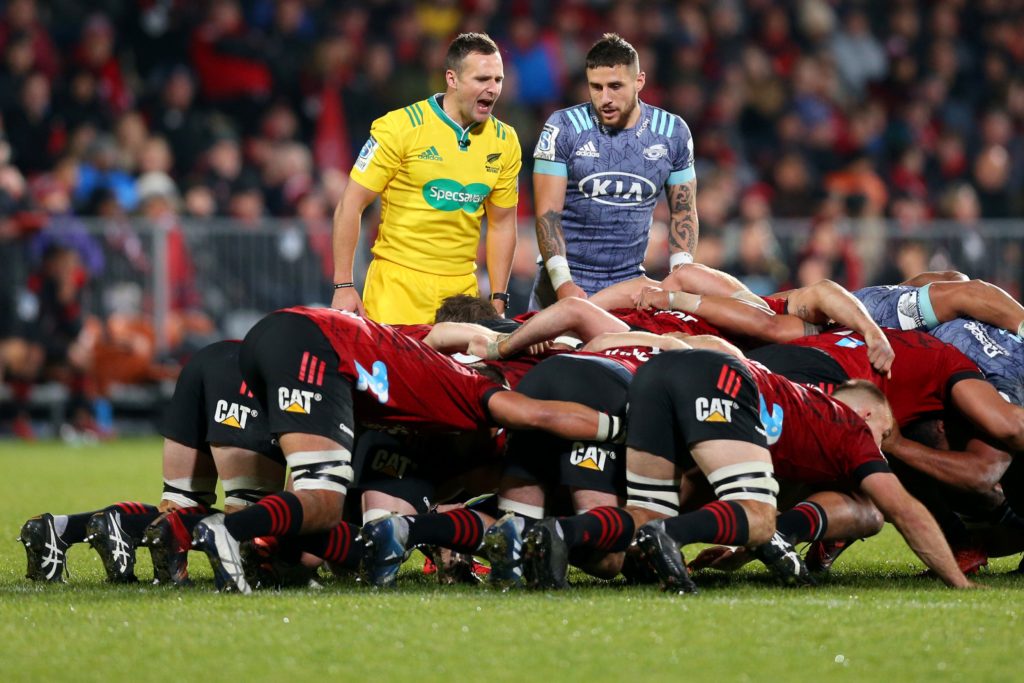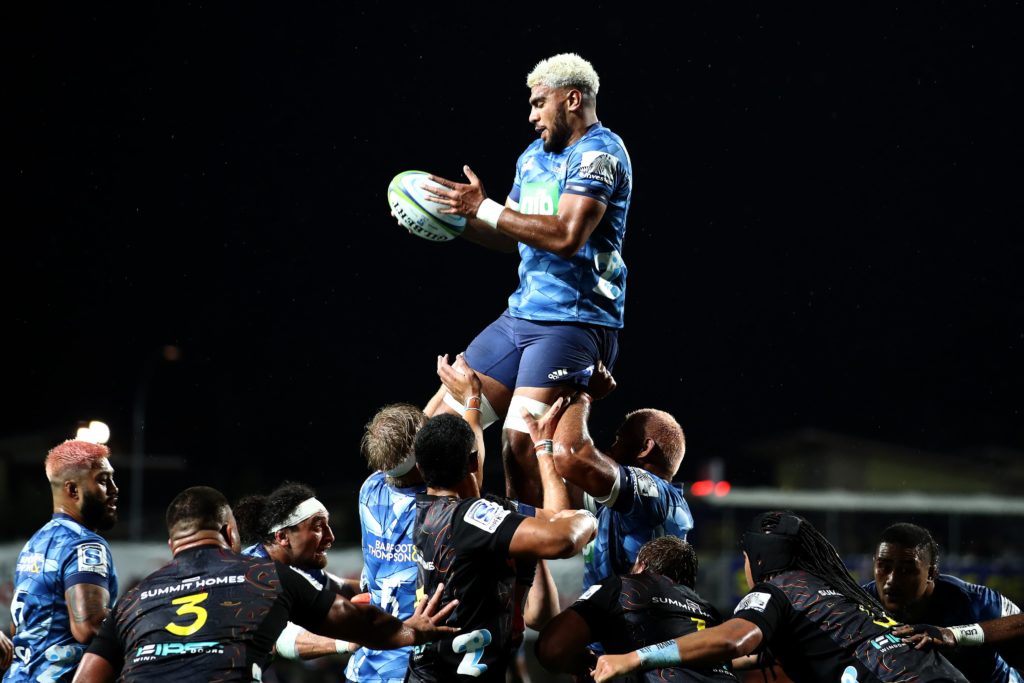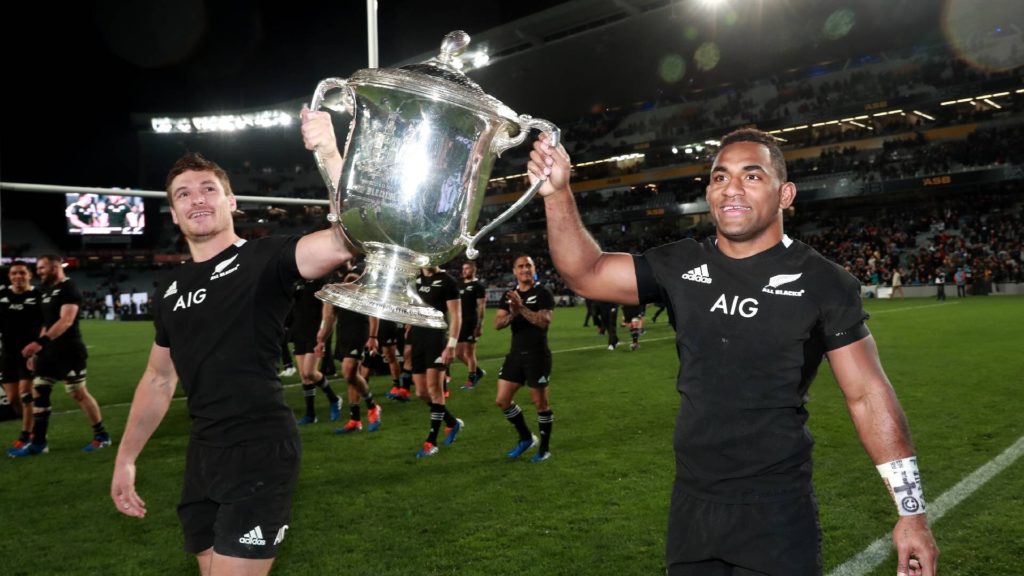While New Zealand’s 102-day respite from Covid-19 might have been too good to last, and probably too good to be true, it was for the national game, a glorious window of opportunity.
For a time, Super Rugby Aotearoa pretty much had the global dancefloor to itself, and it disappointed no-one.
International audiences watched on with more than a touch of envy as, after weeks of being cooped up at home, Kiwis came out in force, the numbers over nine and a bit weeks easily eclipsing the entire attendance for 20 weeks of Super Rugby 2019 in New Zealand.
They were there, initially as much to celebrate a nation’s achievement as to watch a game of footy, but in the process rekindled an interest in Super Rugby that had long been on the wane.
The ridiculously fine weather that had prevailed through the Government’s Level 4 lockdown flickered on into the normally gloomy days of June and July, providing mostly perfect conditions for players and spectators alike, helped by the willingness of broadcaster Sky to soften it’s preference for night time rugby when the viewing audiences are high, but the temperatures low and the air damp.
The Sunday afternoon games were the big winner, the numbers swelled by families taking advantage of uncharacteristically generous pricing plans.
Those turnouts did much to fuel the buzz around the competition, and it’s likely that Sunday games will be part of the landscape going forward, hopefully the prices too.
The name…Super Rugby Aotearoa…also gives a clue to the depth of its popularity. Aotearoa, the Maori name for New Zealand, but one heard with growing frequency amongst all New Zealanders, is commonly translated as ‘Long White Cloud’ but this competition was more reflective of a converse interpretation favoured by some academics as Place of the abiding light’, or ‘long clear day’.
What started as a branding became a symbol. This was rugby the way Kiwis love to see it played. Fast and furious, high on impact, big on skills, thoroughly entertaining and yet a far cry from the defence free early days of Super Rugby. Most games were in the balance well into the final quarter.
Old faces reappeared, elite players reminded us of their class, and some startling new talent emerged.
The closeness of the contests also brought the refereeing into sharp focus, with games often swinging on one big decision.
What started as a branding became a symbol. This was rugby the way Kiwis love to see it played. Fast and furious, high on impact, big on skills, thoroughly entertaining and yet a far cry from the defence free early days of Super Rugby.
Rather than change the laws, as they did in Australia to no obvious positive effect, the refs simply decided to apply the existing ones to the letter in an attempt to try to get shot of the negative tactics that have been stifling the game.
War was declared on the breakdown, and on the offside line.
No longer were the players being coached by the refs. Instead of ‘hands off!’, ‘out of there seven!’, ‘get back 12!’, we were getting a shrill blast of the whistle and a penalty. About 28 per game over the first couple of weekends.
Unfortunately, just as players were getting the message, scrum-halves were getting clean ball and backs were getting more space, the refs dialled it back.

Instead of ignoring the predictable knee-jerk criticism over the amount of whistle, they got a bit sensitive, and while the offside line continued to be effectively policed, by the end of the competition the side entries and illegal cleanouts at the breakdown were nearing the old levels. Pity.
Games on a knife edge can often swing on a contentious call and inevitably there were more than a few of those. For the refs too, it was a tough gig.
But all in all, it was a joyous success, the only drawback being a significant one. Good as it was, the reality is that a five-team, New Zealand-only competition is not a viable prospect for anything other than the short, Covid-infected term.
For starters, while the fans may have lapped it up, give Kiwis time and they will tire of anything, no matter how good, if it becomes repetitious.
Whilst loving the contests, the players by the end were expressing reservations. A competition that was somehow beautiful in it’s brutality produced an alarming attrition rate.
There were no ‘gimmes’, no Kings or Sunwolves to beat up on while resting front-liners (and mercifully for once, no directives from the All Blacks coaching staff to do so).
Casualties mounted, and included three astonishing loose forwards prospects in the rangy Cantabrian Cullen Grace, and Blues tyros Tom Robinson and Hoskins Sotutu, the latter potentially the best multi-skilled No 8 since Zinzan Brooke.
We were also reminded by several leading players that while Kiwi punters might prefer it all one way in terms of style, facing Australian and South African teams, especially in a hostile environment, plays a vital role in preparing the All Blacks for test rugby.

There is also the question of financial viability. The big crowds and the big TV audiences worldwide eased fears in the accounts departments, but again, it could only be seen as a short-term fix.
Next year will be more of the same, but in the long term, whatever shape the competition takes, it will have to be bigger, and it will require passports.
The reference is to “the competition” because Super Rugby as we have known it, is close to breaking point.
Super Rugby Aotearoa came along at a time when New Zealand interest in games involving overseas teams had hit a low ebb.
Rather than dismiss this as an (other) example of Kiwi arrogance, it is worth examining the reasons for this indifference.
For starters, while New Zealanders relish a clash with the Springboks above all others, South Africa’s Super Rugby profile in the eyes of New Zealanders, had nigh disappeared.
Their insistence on extra teams to counter the travel imbalance was a big factor in the watering down of the competition standard.
Add to that SARU’s preference to play their matches at an hour compatible with their own and European audiences, but not those in Australia and New Zealand, and their willingness to allow their top players to ply their trades in more lucrative offshore markets and yet still be eligible for the Springboks, meant much damage had been done to the integrity of a strategically vital competition.
The departure of South Africa from Super Rugby, something that would have seemed unthinkable 20 years ago, has now happened, and even though they take a lot of money with them, it hasn’t caused a great deal of angst, given the amount of complaining and compromising that’s gone on over the years.
The Rugby Championship is a different matter, and having produced, lest we forget, eight of nine World Cup winners it would be foolhardy to dismantle it, regardless of what else was on offer.
But fuelled by Covid, uncertainty exists in all directions.
The departure of South Africa from Super Rugby, something that would have seemed unthinkable 20 years ago, has now happened, and even though they take a lot of money with them, it hasn’t caused a great deal of angst, given the amount of complaining and compromising that’s gone on over the years.
Having once lit a fire under World Rugby, Gus Pichot appears to have given up the ghost after missing out on the big gig at HQ in quite dubious circumstances, and the fear is that Argentina’s Super Rugby ambition will go with him.
Talking of ambition, Japan appears to have little beyond their own lucrative domestic competition. Even if their fans loved it, Japan’s commitment to Super Rugby at boardroom level was never more than lukewarm.
But it is a powerful market, their ability to draw players is up there with that of France and the UK, and it’s a space that must be revisited, lest someone else grabs it.
New Zealand Rugby has finally grown a conscience towards the Island nations, and will insist on a Pasifika team being part of the future, no matter how little return it will bring beyond the turnstile. It is looking at two potential bids to include in Super Rugby Aoteaora 2021 but declined the opportunity to fast-track one in to next year’s competition.
And that leaves the Aussies.
While New Zealand and Australia linked arms with great effect to establish the Rugby World Cup, and again, with considerable help from Louis Luyt, to form Sanzar in the first place, they have rarely been on the same page since.
For all they have achieved on the field, Australia must also take its share of the blame for the dilution of Super Rugby. Despite bringing less money to the table, they have insisted on using what is an international competition to grow their domestic game, resulting in their talent being spread over too many teams.
New Zealand Rugby’s decision to invite expressions of interest from Australia for a new look Super Rugby competition was delivered without any degree of tact or diplomacy, while Australia’s almost mirror image response was bordering on delusional.

But much as New Zealand’s approach lacked humility, there is also a sense that this is one sport on the trans-Tasman landscape in which Australia is not holding the aces, and NZR will not be party to any agreement on the sort of terms that allow New Zealand teams in other sports, notably the Warriors, Breakers and Phoenix, to be routinely disadvantaged by their Aussie masters.
Sanzar itself has never really been much more than a coalition of three rival nations that needed each other, but were driven almost entirely by their own self-interest.
Super Rugby Aotearoa reminded us of just how good a Southern Hemisphere competition can be, but after a succession of mistakes dating back to the first expansion 15 years ago, for the sake of rugby below the Equator, the alliance simply cannot afford to get it wrong this time.



Comments
Join free and tell us what you really think!
Sign up for free